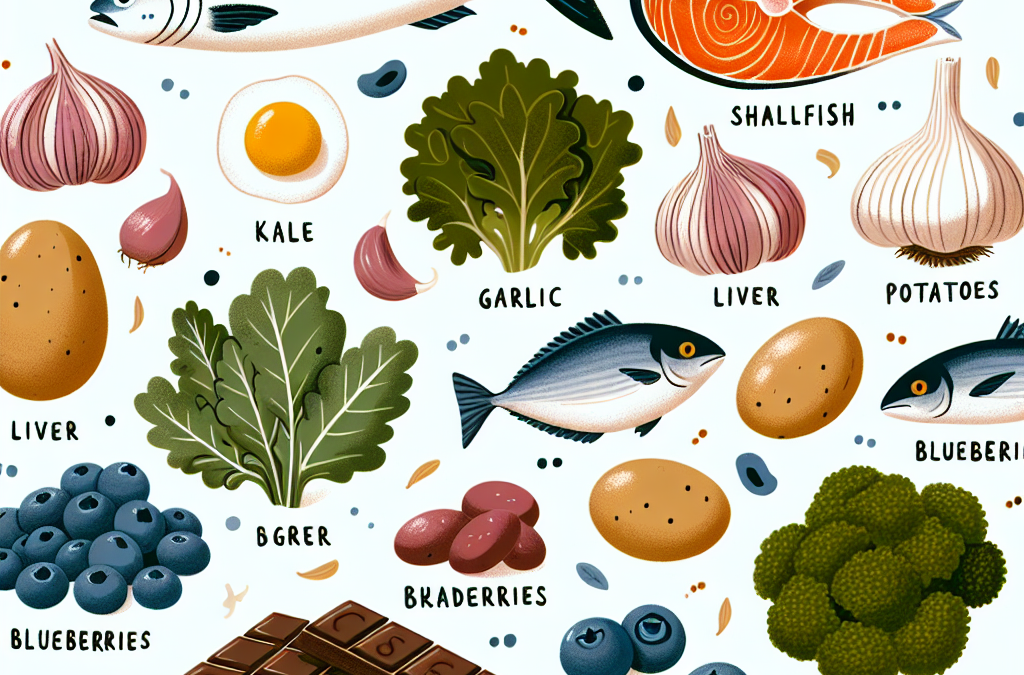Top 10 Nutrient-Dense Whole Foods
- Nutrient-Dense Foods for Optimal Health
- Whole Foods That Pack a Punch
- Superfoods to Include in Your Diet
- Benefits of Eating Whole Foods
Nutrient-Dense Foods for Optimal Health
Understanding Nutritional Density
Nutritional density is like the superstar of the food world. When I first stumbled upon the term, it opened my eyes to how some foods deliver an abundance of nutrients for fewer calories. Imagine being able to eat something that not only fills you up but also fuels your body with everything you need to thrive! Trust me, once you start paying attention to this, you’re going to look at your meals in a whole new way.
Now, the concept really clicks when you realize that not all calories are created equal. For instance, 100 calories of soda versus 100 calories of spinach? One is a quick sugar rush, while the other is like a superhero swooping in to save your health. When you choose nutrient-dense foods, you’re investing in your long-term wellbeing.
So, how do you find these gems? Look for foods rich in vitamins, minerals, and antioxidants, while being low in empty calories. It’s a game-changer! Think dark leafy greens, bright berries, and wholesome grains. Seriously, once you embrace this mindset, choosing what to eat becomes a whole lot easier!
Whole Foods That Pack a Punch
Identifying Whole Foods
Whole foods are like the bare essentials of the food world. We’re talking about foods you can recognize—nothing processed, no weird ingredients you can’t pronounce. My go-to list includes fresh fruits, vegetables, whole grains, nuts, and seeds. These foods nourish your body in the way nature intended.
When I first transitioned to eating more whole foods, I found it liberating. There’s a certain joy in picking out fresh produce at the market and knowing that you’re making choices that support your health. Plus, cooking with whole foods often results in tastier meals since you control the ingredients and flavors.
If you’ve never thought about whole foods as “food with a story,” now’s the time! Each whole food has its own history, from the farm it comes from to how it was harvested. Connecting with your food can deepen your appreciation for what you eat and motivate you to incorporate more of them into your diet.
Superfoods to Include in Your Diet
What Are Superfoods?
Superfoods are like the A-listers of the nutrition world. They’re the foods that come with a laundry list of benefits. You might have heard of them—things like quinoa, blueberries, and kale often take the spotlight. The best part? They’re nutrient-dense, meaning they do a lot of the heavy lifting for your health!
When I added superfoods into my meals, I felt like I was giving my body a powerful boost. Using ingredients like chia seeds or avocado not only ups the nutrient game but also adds a new dimension of flavor and texture to my daily fare. And let’s be honest, they just look good on the plate!
Get an Amazing Discount on Best Organic SuperFood Product!
Incorporating superfoods isn’t as hard as it sounds. You don’t have to whip up an intricate dish; simply adding a handful of nuts to your breakfast or topping your salad with seeds can do wonders. Start small, and soon you’ll feel the energy shift in your body.
Benefits of Eating Whole Foods
Health Benefits
Let’s talk about the perks of including whole foods in your diet. Right off the bat, you’ll notice increased energy levels. That mid-afternoon slump? It doesn’t stand a chance when you’re consuming whole, unprocessed foods. I used to crash after lunch, but switching to whole foods changed that!
Also, whole foods are typically high in fiber, which is fantastic for digestion. And who doesn’t want a happy belly? Foods rich in fiber can make you feel fuller longer, which helps in managing weight. It’s a win-win situation.
Not to mention, whole foods are loaded with antioxidants and vital nutrients that protect against chronic diseases. By incorporating them into your meals, you’re essentially arming your body with the tools it needs to fight off illness. It feels good to know you’re doing something positive for yourself, doesn’t it?
FAQs
What makes a food nutrient-dense?
Nutrient-dense foods provide more vitamins, minerals, and other beneficial nutrients relative to their calorie count. Think leafy greens, berries, and nuts—foods that are low in calories but high in nutrition!
What are examples of whole foods?
Whole foods include fresh fruits and vegetables, whole grains (like brown rice and quinoa), nuts, seeds, and legumes. If it’s unprocessed and close to its natural state, it’s likely a whole food!
How can I incorporate superfoods into my diet?
You can easily add superfoods to your meals by sprinkling seeds onto salads, blending berries into smoothies, or including leafy greens in stir-fries. Get creative and have fun with it!
Why should I choose whole foods over processed foods?
Whole foods are generally more nutritious, helping you avoid added sugars, unhealthy fats, and preservatives found in processed options. Eating whole foods can lead to better health outcomes in the long run!





